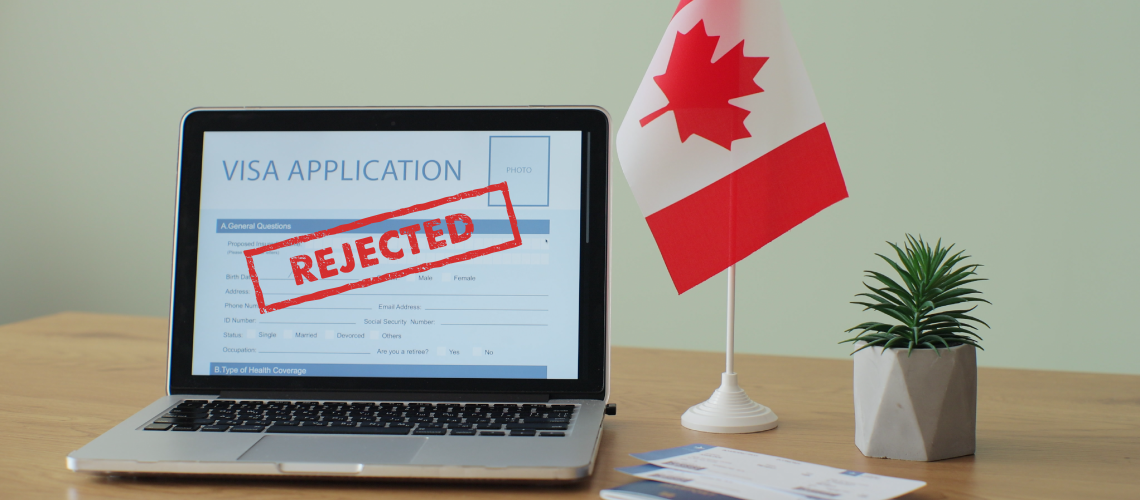- 31 West St, Houghton Estate, Johannesburg, 2198
- info@beaverimmigration.com
- (010) 880 4739
Home » My Canadian study visa was refused by IRCC. What do I do?
My Canadian study visa was refused by IRCC. What do I do?

My Canadian study visa was refused by IRCC.
IRCC received 555,714 new student visa applications from 212 countries in 2021. According to the May 2022 Standing Committee on Citizenship and Immigration Report, 40% of Canadian study permit applications were denied. In 2021, sub-Saharan African countries had 80% refusal rates.
IRCC rejections can be heartbreaking for applicants. Prospective students spend time and money to get into a Canadian university or college, only to be denied entry. Most students will quit their Canadian university applications and goals. Beaver Immigration presents five ways to handle when a Canadian study visa gets refused.


1. Don’t panic
Students may give up after receiving a rejection letter because they think all hope is lost. Student applicants must consider two things. First, visa refusals can be remedied. Second, files can be rejected for reasons unrelated to their quality.
Sometimes a genuine application is mistakenly denied. Some high-volume offices utilize artificial intelligence screening to reject applications. The system may not identify a needed document uploaded. Mistakes happen with hundreds of thousands of applications each year.
2. Order the GCMS notes
Requesting the visa officer’s written notes on the file is the initial step following a visa denial, regardless of the type of visa. These notes are typically between 150 and 200 words in length and detail the officer’s specific reasons for the refusal.
The Global Case Management System (GCMS), which keeps track of the file as it goes through the system, processes the applicant’s entire file, which includes the case notes. To obtain a copy of the GCMS notes, an “Access to Information and Privacy” or “ATIP” request must be filed with the government. An ATIP is a one-page document, signed by the applicant, that is lodged electronically for CAD $5.00.
3. Re-consideration letter
A little-known way to rectify a rejection decision is to write IRCC a letter, or “Re-consideration letter,” requesting that the visa officer review the file again. A letter requesting reconsideration must address all of IRCC’s concerns with the initial application. Rather than introducing new information, it should be used to elaborate on existing principles.
Obtaining a copy of the GCMS notes is crucial for this reason. It permits the applicant to address particular aspects or areas of concern with the file. For instance, it may not have been obvious to the officer where the funds for the study would come from. In this case, a letter explaining that a sponsor or parent will be supporting the student could be sent. Or, in the case of an elderly applicant, the visa officer may not understand why the applicant selected a specific course. In this instance, IRCC must be provided with a career path that clearly articulates the student’s motivation. Sometimes it must be stated explicitly that the applicant desires a career transition to enter a new industry.
4. Re-apply with a new application
Despite the fact that reconsideration letters should always be considered, it should be noted that they are not an official means of appealing a denial. In other words, there is no mention of this approach in the Canadian immigration regulations. Consequently, IRCC is not required to respond to a communication requesting reconsideration.
Beaver Immigration always suggests submitting a new application for a study permit to IRCC. The most apparent reason is that IRCC is required to evaluate the new application. In addition, it is frequently the case that forms were not properly filled out, essential documents were omitted, and the applicant’s intentions were not made clear. In these situations, the visa officer had every right to deny the application. Nothing should be reconsidered or “appealed.”
5. Apply for a judicial Review in Canadian Federal Court
There is a widespread misconception that there is an official appeals process or body for the denial of transitory visas to Canada, such as study permits, visitor visas, and work permits. To “appeal” an unfavorable decision, the sole official recourse is to petition the courts to have a judge assess the application and determine if the visa officer’s decision was “fair, reasonable, and lawful.”
In general, a Canadian judge cannot overturn a decision, but if they determine that due process was not followed, which resulted in an unjust decision, they will order the applicant’s file to be sent to another visa officer at IRCC for review. It is essential to note that the courts can only review evidence associated with the original application; new evidence cannot be submitted to the courts because they will review the application in its original form with the IRCC. Finally, applicants should be aware that if a study permit application is submitted from outside Canada, the applicant has only sixty days to submit a request for a “leave” of the decision.
If you are denied a Canadian student visa, it is not necessarily the end of the road. A competent Canadian immigration consultant will first examine the application as a whole, collect all pertinent facts, and devise a plan to achieve a positive outcome.
Book a online consultation if you have any questions.


